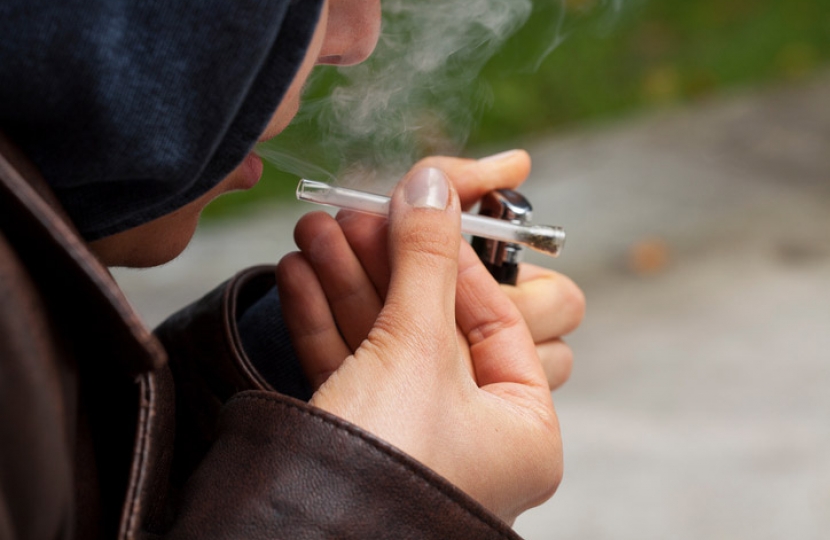
Many people have declared that the war on drugs has failed. Instead of criminalising the use of certain psychoactive substances, some people argue they should be regulated. There are many challenges in this very emotive debate, not least the fact that many proponents of legalisation advocate a system where the state effectively subsidises and supplies substances known to be damaging to certain sections of the population.
One area where I do agree that our system has failed is in dealing effectively with drug users in a way that makes them stop. There has been a focus – not unreasonably – over decades to focus on the suppliers and dealers of the narcotics that sadly ruin the lives of thousands every year. The recent emphasis on tackling county lines gangs is a great example of this. While the National Crime Agency tackles drug importation, police forces have been making arrests and breaking up gangs that move drugs around the country and exploit the most vulnerable along the way. This is admirable work and in the most recent national week of actions Thames Valley Police topped the league tables with 91 arrests and the seizure of 27 weapons, 91 mobile phones as well as drugs and £50,000 in cash.
Dealing with those serious criminals higher up the food chain is of course vital, but tackling one gang and reducing the supply for a short while can often simply drive up the price and cause more harm and criminality along the way. There has been little effort to tackle the market. The real harm is to individuals, and those around them, who consume drugs either recreationally or habitually. The acceptance by many parts of society of what is known as “casual drug use” is no more than tacit acknowledgment of “casually breaking the law”.
Many people feel that the police already turn a blind eye to drug users, and police officers get frustrated by the lack of sanctions and the cycle of the criminal justice system that simply goes through the motions without ever seeking to fix the problem.
So I am delighted that in Thames Valley, as part of the work of the PCC’s Violence Reduction Unit, a new approach is being rolled out. Thames Valley Police are working with partners on a new scheme to actually reduce drug use and tackle those who are actually consuming the drugs as well as those who supply them.
The Drugs Diversions Scheme uses Out of Court Disposals (OOCDs) to direct young people under 18 who are caught in possession of drugs to a rapid assessment and education programme run by drug service professionals locally. The intention is to actually deal with the underlying problem, rather than simply pushing children through the courts, often ruining their life chances and pushing them further into drug use and crime.
There are additional sanctions in place for those who refuse to take up the offer of help, or refuse to attend, they can still be arrested and prosecuted. As will anyone who is suspected of supplying drugs to others. This approach makes it more likely that those taking drugs will receive sanction from the police and also means that, with help education and support, they are less likely to both reoffend and to commit other drug related crime.
We must of course continue to tackle the supply of drugs and while others may continue the debate about legalisation and regulation there is a much more urgent job to be done and that is stopping people, particularly young people, from embarking on a course that can ruin their health, lead them irreversibly into the criminal justice system and sadly all too often cost them their lives.
This new approach from Thames Valley Police has already been piloted and has had notable success in getting people to engage with the programme and therefore reduce drug use and reoffending. Some people have described this as a “soft touch”, but they are mistaken. Criminal sanctions remain available for those who do not take the help that is offered, but for sadly in the past we have seen the system failing to the extent that those prosecuted for minor offences find themselves on a one way street to greater addiction and criminality. This approach seeks to reduce the harm of drugs to the individual, but just as importantly to reduce the harm to society. Getting people to stop taking drugs means less crime, less addiction and less of a market for those who seek to push their poisons on our streets.

